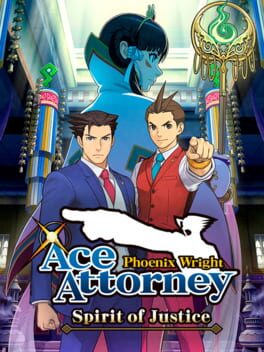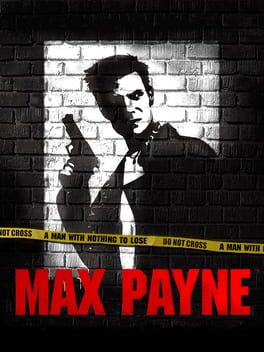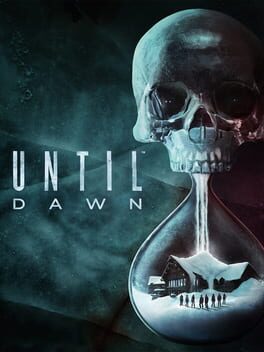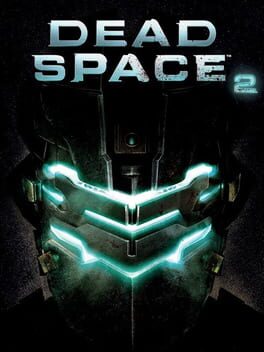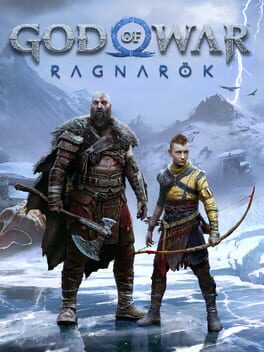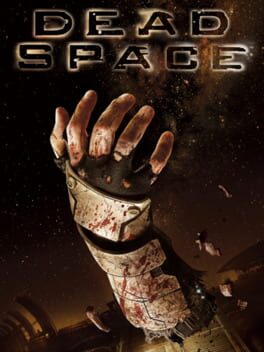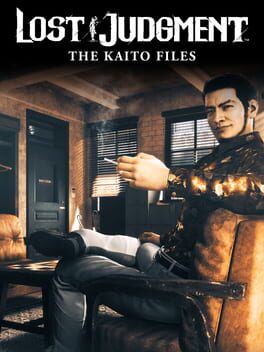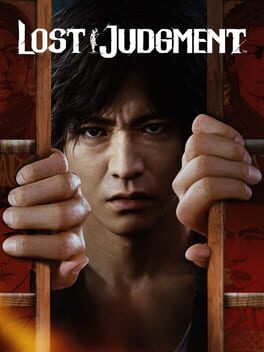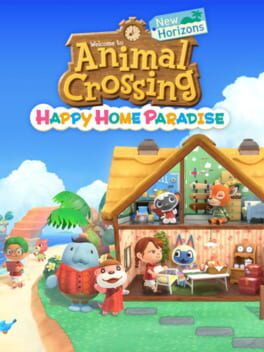Tonioswelt
An utterly uneven experience from beginning to end that doesn't just feature two completely irrelevant trials that completely tank the pacing of the story but also dares to have one of them be one of the most boring cases in the franchise which should probably and honestly have been DLC or simple extra cases post game.
That stands in complete contrast to the two trials here that are really good, especially the third one, which may just be one of my favorites in the series. The game also feels a lot more like a proper follow up to AA4 than Dual Destinies did which somewhat makes DD feel all the more irrelevant in retrospect, which is somewhat damning since, for all its supposed faults, DD is at least a much more consistent game than this wildly over the place SoJ. They push Apollo back into the spotlight, which you may not expect because of how the story is told for most of its runtime. They address the whole forged evidence thing in a much grander scale than they did in 5 which makes this feel like a more evolved follow up to the ideas pushed forward in 4, but in the end the game is still undercooked.
The ending also fell flat on its face for me which makes this a genuinely sad ending for the franchise, with no new entry in 8 years. At least not in terms of this specific continuity. Ace Attorney 7 should still be coming according to the now years old Capcom leaks but I feel like its state is in flux. I can't say I need more Apollo but I don't feel like Takumi would want to return to Phoenix either. But considering in which directions they took Apollo he may have no other choice to go back to Phoenix or just soft reboot the franchise all over again, which may feel fans unsatisfied after so many years of waiting. If Takumi is the one helming the next entry in the first place... who knows. I hope it won't be much longer until that game gets revealed, if it still exists, and that it initiates a new trilogy – or at least Duology like The Great Ace Attorney's – that tells a more refined story over multiple games. And while we're at it, please bring back interesting prosecutors.
That stands in complete contrast to the two trials here that are really good, especially the third one, which may just be one of my favorites in the series. The game also feels a lot more like a proper follow up to AA4 than Dual Destinies did which somewhat makes DD feel all the more irrelevant in retrospect, which is somewhat damning since, for all its supposed faults, DD is at least a much more consistent game than this wildly over the place SoJ. They push Apollo back into the spotlight, which you may not expect because of how the story is told for most of its runtime. They address the whole forged evidence thing in a much grander scale than they did in 5 which makes this feel like a more evolved follow up to the ideas pushed forward in 4, but in the end the game is still undercooked.
The ending also fell flat on its face for me which makes this a genuinely sad ending for the franchise, with no new entry in 8 years. At least not in terms of this specific continuity. Ace Attorney 7 should still be coming according to the now years old Capcom leaks but I feel like its state is in flux. I can't say I need more Apollo but I don't feel like Takumi would want to return to Phoenix either. But considering in which directions they took Apollo he may have no other choice to go back to Phoenix or just soft reboot the franchise all over again, which may feel fans unsatisfied after so many years of waiting. If Takumi is the one helming the next entry in the first place... who knows. I hope it won't be much longer until that game gets revealed, if it still exists, and that it initiates a new trilogy – or at least Duology like The Great Ace Attorney's – that tells a more refined story over multiple games. And while we're at it, please bring back interesting prosecutors.
2023
Alan Wake 2 is not perfect, but I do not care. The craftmanship put into its plotting and characters as well as the presentation is out of this world. I have rarely been this engrossed into a story and gameworld, if at all. I devoured all of the ingame lore, which I have never done for any other game, ever. I've seen this game's story described a "page turner" again and again. Beyond that being quite the pun with the literal turning of manuscript pages once you pick them up, I cannot think of a better way to describe the progression of storybeats.
There's a few occasions of the game's pacing failing to keep up during some of the longer chapters, which are always redeemed by the fantastic plot progression and songs bookending every chapter. The game shows a remarkable ability to have its characters figure out things at a similar pace to the player's as well as just generally both answering questions as well as leaving more questions in the player's path in a way that keeps the player engaged. Though I definitely think that this aspect of the story was much more refined on Saga's part of the story.
Saga is a great addition to the franchise who only got better as time went on. While I don't think that reports of Alan's and Saga's stories being the same length were, I must have spent at least 5 more hours playing Saga, probably more, I didn't really mind that fact by the end. Alan is much more than a character in the story, he is a presence that could be felt over its entire duration. Though a part of me wishes for him to take center stage more in a potential sequel, I trust Sam Lake to continue his (and Saga's) story in a way that will satisfy me.
I've already had a love/hate relationship to this game's predecessor, a game with a similarly engrossing presentation and storytelling but with terrible gameplay and a generally a bit too surreal story that was harder to follow that I personally would like it to.
Alan Wake II improves on both of these fronts. The gameplay is alot better, if not something worth talking about. Limiting the amount of combat encounters, adding some more enemy types and making it more survival based was the simple solution this type of game needed.
But it is very apparent that Remedy needed more time. This was one of the buggiest games I have ever played in my entire life. I can't count the amount of times collectibles didn't count toward my progression, items didn't appear, voice lines didn't get played or similar stuff that gated me from continuing. While most of these problems could be fixed with reloading the latest save, not all of them were. Add to that the artifacty presentation on consoles and common animations errors or just bad animations in themselves and you can notice where Remedy bit off more than they could chew.
The atmosphere and overall uniqueness of Remedy games just cannot be matched. I feel like they've been improving with every single game (since Alan Wake) and this is their definitive peak for now. The writing inherent to these games is nothing short of amazing and I really hope that the two DLC and the NG+ mode can elaborate on the story here in a satisfying way that makes the presumed 6+ year wait for another entry more easy to swallow. With Control 2 and the Max Payne remakes being conformed to be in development, it will definitely take a while longer till we see the spiral ascend.
There's a few occasions of the game's pacing failing to keep up during some of the longer chapters, which are always redeemed by the fantastic plot progression and songs bookending every chapter. The game shows a remarkable ability to have its characters figure out things at a similar pace to the player's as well as just generally both answering questions as well as leaving more questions in the player's path in a way that keeps the player engaged. Though I definitely think that this aspect of the story was much more refined on Saga's part of the story.
Saga is a great addition to the franchise who only got better as time went on. While I don't think that reports of Alan's and Saga's stories being the same length were, I must have spent at least 5 more hours playing Saga, probably more, I didn't really mind that fact by the end. Alan is much more than a character in the story, he is a presence that could be felt over its entire duration. Though a part of me wishes for him to take center stage more in a potential sequel, I trust Sam Lake to continue his (and Saga's) story in a way that will satisfy me.
I've already had a love/hate relationship to this game's predecessor, a game with a similarly engrossing presentation and storytelling but with terrible gameplay and a generally a bit too surreal story that was harder to follow that I personally would like it to.
Alan Wake II improves on both of these fronts. The gameplay is alot better, if not something worth talking about. Limiting the amount of combat encounters, adding some more enemy types and making it more survival based was the simple solution this type of game needed.
But it is very apparent that Remedy needed more time. This was one of the buggiest games I have ever played in my entire life. I can't count the amount of times collectibles didn't count toward my progression, items didn't appear, voice lines didn't get played or similar stuff that gated me from continuing. While most of these problems could be fixed with reloading the latest save, not all of them were. Add to that the artifacty presentation on consoles and common animations errors or just bad animations in themselves and you can notice where Remedy bit off more than they could chew.
The atmosphere and overall uniqueness of Remedy games just cannot be matched. I feel like they've been improving with every single game (since Alan Wake) and this is their definitive peak for now. The writing inherent to these games is nothing short of amazing and I really hope that the two DLC and the NG+ mode can elaborate on the story here in a satisfying way that makes the presumed 6+ year wait for another entry more easy to swallow. With Control 2 and the Max Payne remakes being conformed to be in development, it will definitely take a while longer till we see the spiral ascend.
2001
I'm genuinely baffled by how much fun I had with this game. The storytelling is ridiculous. Its commitment to playing it serious is what saves it though. Sam Lakes managed to write a pretty perfect pastiche of a noir tone within the bounds of this game's limitations. Max Payne is a real doofus, with his elaborate narration and continuos pop culture references making him somewhat likeable even when he's a murderous psychopath out for revenge. Stop being so serious Max, you're not as cool as you think. Though you behaving like that does make you kinda cool. I know it's paradoxical, I don't care.
I was about to write "the gameplay is the real star of the show here" while that isn't entirely true. The overall mood conveyed by the narrative lifts up the entire experience by at least a couple of notches. I doubt the gameplay would've been as engaging without it. Anways, the gameplay:
Fun. As. Fuck. The controls are simple and direct, there aren't any huge hick ups with how Max feels as soon as you've come to grips with the button mappings. Dodging around your enemies just to shoot them in the head while they're still shooting at where you stood seconds prior and shootdoging (aka leaping) through the air while picking off your enemies one by one feels fantastic. I played Max Payne 3 many years prior and hated the gamefeel in that, it's so much better here that I'm actively embarassed for Rockstar's attempt at a Max Payne game.
Though I have to admit, I probably wouldn't have enjoyed the game as much without the quick save function. Being able to reload the encounters in any way you wanted to (as long as you've saved beforehand) was a godsend in experimenting and getting the most out of the combat. You can die pretty easily as well as with a single hit by enemies you haven't even seen, which is why the quick saves are even more essential. I'm not sure what the experience would be like without quicksaving all of the time.
The one thing I've got to complain about with the combat would be that some of the weapons are too weak. I really couldn't be bothered to use any weapons besides the machine guns towards the end of the game. That one colt machine gun thing was pretty much the only weapon that allowed headshotting your enemies during bullet time, which made every other weapon redundant. I still switched up my weapons relatively often, just because of ammo constraints or because I felt like it. Even though most weapons aren't as useful as the colt, it's still fun to try out every weapon you've got.
The level design is generally good too. Feels like it mixes up the encounters often enough, having enemies placed at interesting spots or entering mid-combat through newly unlocked doors. The levels are as visually distinct as they could be within this New York settings and traversal is mixed up occasionally which leads to the game never feeling dull at all.
I had an incredibly fun time with Max Payne, can't wait to see more of Sam Lake's face next week when Alan Wake II finally releases.
I was about to write "the gameplay is the real star of the show here" while that isn't entirely true. The overall mood conveyed by the narrative lifts up the entire experience by at least a couple of notches. I doubt the gameplay would've been as engaging without it. Anways, the gameplay:
Fun. As. Fuck. The controls are simple and direct, there aren't any huge hick ups with how Max feels as soon as you've come to grips with the button mappings. Dodging around your enemies just to shoot them in the head while they're still shooting at where you stood seconds prior and shootdoging (aka leaping) through the air while picking off your enemies one by one feels fantastic. I played Max Payne 3 many years prior and hated the gamefeel in that, it's so much better here that I'm actively embarassed for Rockstar's attempt at a Max Payne game.
Though I have to admit, I probably wouldn't have enjoyed the game as much without the quick save function. Being able to reload the encounters in any way you wanted to (as long as you've saved beforehand) was a godsend in experimenting and getting the most out of the combat. You can die pretty easily as well as with a single hit by enemies you haven't even seen, which is why the quick saves are even more essential. I'm not sure what the experience would be like without quicksaving all of the time.
The one thing I've got to complain about with the combat would be that some of the weapons are too weak. I really couldn't be bothered to use any weapons besides the machine guns towards the end of the game. That one colt machine gun thing was pretty much the only weapon that allowed headshotting your enemies during bullet time, which made every other weapon redundant. I still switched up my weapons relatively often, just because of ammo constraints or because I felt like it. Even though most weapons aren't as useful as the colt, it's still fun to try out every weapon you've got.
The level design is generally good too. Feels like it mixes up the encounters often enough, having enemies placed at interesting spots or entering mid-combat through newly unlocked doors. The levels are as visually distinct as they could be within this New York settings and traversal is mixed up occasionally which leads to the game never feeling dull at all.
I had an incredibly fun time with Max Payne, can't wait to see more of Sam Lake's face next week when Alan Wake II finally releases.
2022
Pretty split on this (He says, rating it 4 stars out of 5). For all of its immersive storytelling and inspired visuals there's at least as much tedium in the game's traversal which leads to the experience being much more unfocused than it should've been. Thinking back on my playthrough that happened a week from me writing this down, everytime I do think about the game it's because of the boredom I felt during large chunks of it. Walking around, trying to speak to every NPC at least once so I wouldn't miss out on any important information. There must've been a better way to handle this. I certainly didn't have this problem with Disco Elysium.
I obviously still loved my time with the game, but there's no reason for me to elaborate on that as most other reviews will put my thoughts into better and more coherent sentences than I ever could.
I obviously still loved my time with the game, but there's no reason for me to elaborate on that as most other reviews will put my thoughts into better and more coherent sentences than I ever could.
2015
such a weird game
it‘s a fun interactive play on your average teen horror movie with pretty intruiguing character stereotypes even if just because you‘re able to play as them. I doubt I‘d really care for most of them if this had been a movie.
Okay so anyway, the game is really gorgeous, but its animations make it look a thousand times cheaper than its visuals.
The really big problem, if perhaps only problem here, is that some of the character deaths are just unnecessarily railroaded which just feels both unsatisfying narratively as well as from a game design standpoint. Of course the point of the game is to have characters die and it‘s hard to write a satisfying narrative around that, but just the possibility of a character dying solely based on one choice instead of a chain of bad decisions or failing quick time events is ultimately a letdown. We played the game over a course of two days at a birthday hangout weekend, the guy who played it had never really came into contact with the game before. Watching him kill off Matt because he wanted to save Emily and being placed in a railroaded segment with no way of getting out is just… bad. There’s no way for the player to gauge the effects of his decisions beforehand and the lack of communication about how dire the situation was really lacks any kind of
pay off to make the death feel earned in any sense of the word. Ashley‘s death was similar, though at the very least it could be argued that making the decision to split off the group is foreshadowed to be wrong by the weird mountain man‘s book. Still, not even getting the option to return to the other characters, having some kind of quicktime event to not make the entire sequence that railroaded or maybe having Chris come looking for her if they‘re in a relationship by that point. Her death isn‘t even acknowledged by neither Chris, her lover, nor Sam and Mike who pass by her seperated head. Just makes it feel sooo meaningless.
Just odd. It‘s fun as an interactive game but the gameplay in terms of having the deaths really feel like actual consequences of the player is really undercooked.
Would still recommend Until Dawn to just about everyone, it‘s been dear to me ever since watching thousands of let‘s plays on it back in 2015.
it‘s a fun interactive play on your average teen horror movie with pretty intruiguing character stereotypes even if just because you‘re able to play as them. I doubt I‘d really care for most of them if this had been a movie.
Okay so anyway, the game is really gorgeous, but its animations make it look a thousand times cheaper than its visuals.
The really big problem, if perhaps only problem here, is that some of the character deaths are just unnecessarily railroaded which just feels both unsatisfying narratively as well as from a game design standpoint. Of course the point of the game is to have characters die and it‘s hard to write a satisfying narrative around that, but just the possibility of a character dying solely based on one choice instead of a chain of bad decisions or failing quick time events is ultimately a letdown. We played the game over a course of two days at a birthday hangout weekend, the guy who played it had never really came into contact with the game before. Watching him kill off Matt because he wanted to save Emily and being placed in a railroaded segment with no way of getting out is just… bad. There’s no way for the player to gauge the effects of his decisions beforehand and the lack of communication about how dire the situation was really lacks any kind of
pay off to make the death feel earned in any sense of the word. Ashley‘s death was similar, though at the very least it could be argued that making the decision to split off the group is foreshadowed to be wrong by the weird mountain man‘s book. Still, not even getting the option to return to the other characters, having some kind of quicktime event to not make the entire sequence that railroaded or maybe having Chris come looking for her if they‘re in a relationship by that point. Her death isn‘t even acknowledged by neither Chris, her lover, nor Sam and Mike who pass by her seperated head. Just makes it feel sooo meaningless.
Just odd. It‘s fun as an interactive game but the gameplay in terms of having the deaths really feel like actual consequences of the player is really undercooked.
Would still recommend Until Dawn to just about everyone, it‘s been dear to me ever since watching thousands of let‘s plays on it back in 2015.
Tears of the Kingdom had me amazed for a good chunk of its playtime. Where I felt that Breath of the Wild pretty much only consistent of padding and alot of middling content at that I came away quite disappointed, not here though.
The open world progression was greatly improved by the mere addition of caves, the sky and slightly more involved feeling sidequests and the fuse system, while not really fun, at least alot better than the annoying weapon breaking from the predecessor.
Sure, there's still alot of shrines, way too many of them, all of them still samey looking and so incredibly easy that I can't help but scratch my head when hearing about friends and people on the internet having difficulties with them.
Then there's the story itself, which is still pretty terrible in terms of its mission structure (defeat different enemies at different locations to trigger a cutscene; find the three stone pillars and loot the chests inside them) but there's some fun content here and there that feels more worthwhile than any of the story missions from BotW (besides the one in the desert, which are also the standout here).
The dungeons are an improvement as well, still nowhere as good as the ones form the previous games but at least closer to being an enjoyable, with the desert dungeon being the standout and the water and wind temples being almost just as bad as the divine beasts from BotW. At least the bosses are cooler and the dungeon themes themselves are catchy. Only four (five) of them though? What a waste.
With how long the game has been in development and them reusing the map it's a bit odd how little effort was put into the design of the story progression – but that's okay, as the story itself is more involved and interesting than whatever they tried with BotW, but still not that special. Telling it via memories still seems like a cop out but I've gotten used to the formula so I can't say that I'm as disappointed as I was all those years ago with BotW.
You can probably already tell that alot of what I like about TotK I only really like because it's better than what BotW had to offer, even though I may still not like what is there entirely. BotW feels like an alpha version to this game in the least flattering way possible, which makes BotW entirely redundant.
The depths suck, the combat is still pretty terrible. There's definitely enough variety for the game to be fun but a little more couldn't have hurt. I don't know. I had fun here, alot more genuine fun than I had with BotW. Does that really make TotK a good game? idk
It's a 7 or an 8, giving it an 8 rn for the fun I had in my first 50 or so hours.
The open world progression was greatly improved by the mere addition of caves, the sky and slightly more involved feeling sidequests and the fuse system, while not really fun, at least alot better than the annoying weapon breaking from the predecessor.
Sure, there's still alot of shrines, way too many of them, all of them still samey looking and so incredibly easy that I can't help but scratch my head when hearing about friends and people on the internet having difficulties with them.
Then there's the story itself, which is still pretty terrible in terms of its mission structure (defeat different enemies at different locations to trigger a cutscene; find the three stone pillars and loot the chests inside them) but there's some fun content here and there that feels more worthwhile than any of the story missions from BotW (besides the one in the desert, which are also the standout here).
The dungeons are an improvement as well, still nowhere as good as the ones form the previous games but at least closer to being an enjoyable, with the desert dungeon being the standout and the water and wind temples being almost just as bad as the divine beasts from BotW. At least the bosses are cooler and the dungeon themes themselves are catchy. Only four (five) of them though? What a waste.
With how long the game has been in development and them reusing the map it's a bit odd how little effort was put into the design of the story progression – but that's okay, as the story itself is more involved and interesting than whatever they tried with BotW, but still not that special. Telling it via memories still seems like a cop out but I've gotten used to the formula so I can't say that I'm as disappointed as I was all those years ago with BotW.
You can probably already tell that alot of what I like about TotK I only really like because it's better than what BotW had to offer, even though I may still not like what is there entirely. BotW feels like an alpha version to this game in the least flattering way possible, which makes BotW entirely redundant.
The depths suck, the combat is still pretty terrible. There's definitely enough variety for the game to be fun but a little more couldn't have hurt. I don't know. I had fun here, alot more genuine fun than I had with BotW. Does that really make TotK a good game? idk
It's a 7 or an 8, giving it an 8 rn for the fun I had in my first 50 or so hours.
2023
Doesn't hold a candle to the original in terms of tone or character. The cutscenes have nowhere near the same style in their direction and characters like Saddler only suffer from the toned down campiness. Going with a more modern approach to Resident Evil also leads to less intense action sequences since there are not just fewer combat segments but also less enemies overall, though there's still more than plenty action to roundhouse kick during. Really excited for The Mercenaries because the new combat might be the best thing about the remake. That parry mechanic with the knife is a genuine game-changer.
Ada is completely bogged down here compared to 2 Remake and the original fourth game, her new VA doesn't seem to have any kind of fun performing her innuendos with Leon and Leon himself is still cool but not in a as sincere action-hero kinda way because of his trauma. Ashley on the other hand is a total improvement over her original version.
RE4make, just like the original, excites with a lengthy campaign that is varied to no end, little to no boring down time and a bigger focus on exploration. It fails to hit as much as the original game and yet is just a few more inspired design-decisions short of being a modern masterpiece. What they did with side characters like Luis or the bits of lore scattered around the gameworld are welcome improvements. Don't mind my complaining, because this is still pretty much the GOAT.
And yet, it had me gripped for 90% of its time during my 18h one-sitting-playthrough (as is tradition). Definitely (probably) my favorite of the modern Resident Evil games and therefore on spot #2, right behind the original, on my Resident Evil favorites list.
Ada is completely bogged down here compared to 2 Remake and the original fourth game, her new VA doesn't seem to have any kind of fun performing her innuendos with Leon and Leon himself is still cool but not in a as sincere action-hero kinda way because of his trauma. Ashley on the other hand is a total improvement over her original version.
RE4make, just like the original, excites with a lengthy campaign that is varied to no end, little to no boring down time and a bigger focus on exploration. It fails to hit as much as the original game and yet is just a few more inspired design-decisions short of being a modern masterpiece. What they did with side characters like Luis or the bits of lore scattered around the gameworld are welcome improvements. Don't mind my complaining, because this is still pretty much the GOAT.
And yet, it had me gripped for 90% of its time during my 18h one-sitting-playthrough (as is tradition). Definitely (probably) my favorite of the modern Resident Evil games and therefore on spot #2, right behind the original, on my Resident Evil favorites list.
2011
Dead Space 2 is a bit of a weird game where its pacing is more reminiscent of Resident Evil 4. Alot more linear, more action, more enemies rushing at you at once.
They got rid of the typical Dead Space 1 structure which had you follow two mission objectives in seperate parts of the maps, which is welcome. Now you basically just run from point A to point B to point C to point D until you're at Z - the end. Didn't have a ton of fun with that structure until the midway point, after which this more linear structure finally clicked for me. I can't fully say I prefer this type of game to Dead Space 1, both of them have their strengths and weaknesses, but considering the mindset I was in while playing DS2 I had a bit more fun with this entry.
Something that's definitely alot worse here are the characters. My god. The antagonists are complete and utter disappointments. Isaac finally talking doesn't add much to him or characters either, but at least he's got some fun quips. Ellie is pretty terrible as well, though reading some of the lore and listening to audio logs makes her a bit more interesting. I feel like the one take structure definitely led to the story feeling more constrained than it should have, a trapping the previous game (and the new God of Wars) also fell into.
The set-pieces made me incredibly happy, impactful and bombastic, fuck the quick time sequences though. Gameplay wise barely anything changed, just felt snappier to control, which might just be because they finally got the mouse controls working here.
In the end I'm not entirely sure how I feel about this game. It's good, maybe slightly better than the previous entry though in the end it does not really matter. I just feel like there's something missing in the Dead Space formular. The secret sauce. It just doesn't exist. Might be a more campy tone, might be more bombastic sequences, better level design, more puzzles maybe? These are fun, sometimes maybe even scary games, but not the standouts I kept hearing about.
They got rid of the typical Dead Space 1 structure which had you follow two mission objectives in seperate parts of the maps, which is welcome. Now you basically just run from point A to point B to point C to point D until you're at Z - the end. Didn't have a ton of fun with that structure until the midway point, after which this more linear structure finally clicked for me. I can't fully say I prefer this type of game to Dead Space 1, both of them have their strengths and weaknesses, but considering the mindset I was in while playing DS2 I had a bit more fun with this entry.
Something that's definitely alot worse here are the characters. My god. The antagonists are complete and utter disappointments. Isaac finally talking doesn't add much to him or characters either, but at least he's got some fun quips. Ellie is pretty terrible as well, though reading some of the lore and listening to audio logs makes her a bit more interesting. I feel like the one take structure definitely led to the story feeling more constrained than it should have, a trapping the previous game (and the new God of Wars) also fell into.
The set-pieces made me incredibly happy, impactful and bombastic, fuck the quick time sequences though. Gameplay wise barely anything changed, just felt snappier to control, which might just be because they finally got the mouse controls working here.
In the end I'm not entirely sure how I feel about this game. It's good, maybe slightly better than the previous entry though in the end it does not really matter. I just feel like there's something missing in the Dead Space formular. The secret sauce. It just doesn't exist. Might be a more campy tone, might be more bombastic sequences, better level design, more puzzles maybe? These are fun, sometimes maybe even scary games, but not the standouts I kept hearing about.
2022
Just like God of War 2018 'Ragnarök' is nothing more to me than a fun and entertaining videogame blockbuster experience.
Star of the show here definitely is the core gameplay. Forget about the narrative, forget about level design or anything else. Switching between weapons and finishing off your enemies with special attacks feels even better than in the predecessor. A shame about the camera, that reveals itself as the gameplay's biggest flaw on harder difficulties especially. The camera is too close to Kratos' back while enemies are allowed to attack you from even outside the border of the screen. This in combination with the lack of proper healing options can lead to quite frustrating gameplay sequences. I can't count how often I must have died because I left a prior battle sequence with barely any health left, just to not be able to heal and enter the next battle just to be one-shot from the back. I might as well have given up and just started to deliberately get killed at the start of the battle, just to get health and cooldowns back.
Beyond the gameplay though, Ragnarök sports quite the messy and perhaps overly long narrative considering how little it has to offer. Thematic pay offs are the big highlight here, while the overall narrative of Ragnarök is paced so horribly that little joy came out of my experience with the story. Odin's macguffin might be one of the worst plot devices in recent memory while several moments were so obviously mashed together in order to lead from one set-piece to the other. Ragnarök had me scratching my head quite a bit, wondering why several story missions even had to exist, beyond padding out the already long runtime. At least most if definitely not all of the father & son moments between Kratos & Atreus are wonderfully placed, written and performed.
I just wish Ragnarök did a bit more with its structure. Going from one story mission to another, switching characters and then being overwhelmed with an open, huge area filled to the brim with side quests is such a staple in this, that I couldn't help but get annoyed at how transparently Ragnarök tried to structure its side content into the main narrative.
Star of the show here definitely is the core gameplay. Forget about the narrative, forget about level design or anything else. Switching between weapons and finishing off your enemies with special attacks feels even better than in the predecessor. A shame about the camera, that reveals itself as the gameplay's biggest flaw on harder difficulties especially. The camera is too close to Kratos' back while enemies are allowed to attack you from even outside the border of the screen. This in combination with the lack of proper healing options can lead to quite frustrating gameplay sequences. I can't count how often I must have died because I left a prior battle sequence with barely any health left, just to not be able to heal and enter the next battle just to be one-shot from the back. I might as well have given up and just started to deliberately get killed at the start of the battle, just to get health and cooldowns back.
Beyond the gameplay though, Ragnarök sports quite the messy and perhaps overly long narrative considering how little it has to offer. Thematic pay offs are the big highlight here, while the overall narrative of Ragnarök is paced so horribly that little joy came out of my experience with the story. Odin's macguffin might be one of the worst plot devices in recent memory while several moments were so obviously mashed together in order to lead from one set-piece to the other. Ragnarök had me scratching my head quite a bit, wondering why several story missions even had to exist, beyond padding out the already long runtime. At least most if definitely not all of the father & son moments between Kratos & Atreus are wonderfully placed, written and performed.
I just wish Ragnarök did a bit more with its structure. Going from one story mission to another, switching characters and then being overwhelmed with an open, huge area filled to the brim with side quests is such a staple in this, that I couldn't help but get annoyed at how transparently Ragnarök tried to structure its side content into the main narrative.
2008
Remarkable horror game that manages to surprise with differing combat scenarios and quite the interesting lore but doesn't reach its full potential due to the lack of a facetted narrative throughout the first two thirds of the game, a silent protagonist and a lack off meaningful boss encounters. A great game nonetheless. Glad I finally played it.
Really good if not massively overpriced expansion on Kaito as a character, who isn't just more charismatic than Yagami but also gets a deeper dive into his backstory within 8h of content than Yagami did over two entire games.
A must for people who liked Kaito in the main games. Noticeably cheap in a couple of places, especially apparent from the lack of properly directed cutscenes over a certain stretch of the story. Could have used five to even ten substories and a very simple completion list to really stand out in its own right.
A must for people who liked Kaito in the main games. Noticeably cheap in a couple of places, especially apparent from the lack of properly directed cutscenes over a certain stretch of the story. Could have used five to even ten substories and a very simple completion list to really stand out in its own right.
2021
Lost Judgment is a confusing game. It's all over the place quality-wise but might still be one of my favorite gaming experiences in recent times.
Yagami is a plain as bread character in this game and contrary to a Kiryu doesn't have the personality to carry an entire game's content on his back. While he's great to play and a joy to watch in cutscenes featuring his fighting choreography there's not much more to him than him just being a good guy. Takuya Kimura is a great actor but he's never more than just "cool" in the way Kiryu or Akiyama were.
On the other hand, the side content that is in this game is quite great and perhaps more consistent than most of RGG Studio's games. The school stories are particular standouts with the character tying them together, Amasawa, being one of the most likeable characters in the entire franchise.
Then there's the story that is, as always, competently told and once again continues the streak that has been going on since Yakuza 6: The way these games tie their plot together at the end is nothing short of astounding and managed to soothe many of my gripes with this game's storytelling within a two or three hour timeframe.
Lost Judgment got two of the most impressive villains in the franchise. One of them is more threatening than anyone who's come before and instilled me with a great fear of ice picks, while the other while not as tragically likeable as the game sets them up to be, is still interesting enough for me to shed a tear or two at the conclusion their character received.
They trimmed alot of the more repetitive aspects from the first Judgment down while adding a couple of others which makes the game much more streamlined to play and definitely is an improvement over the first game.
The thing Lost Judgment really lacks though is a gripping story. Interestingly enough, by the end I felt like I got more out of this narrative than I did from the first game's. The plot advances in such a roundabout way and is never complicated enough to really catch me off guard or make me think. I pretty much went through the entire game (which took me 50 hours and 13 minutes to beat, including all of the substories) without ever feeling the urgent desire to continue playing the story.
I don't think I've ever been this disassociated from a RGG story before, even though it is still a very good one. The problems stem from badly paced storytelling and Yagami not being particularly involved in the plot or being interesting by himself.
Yet, by the end, I loved my time with Lost Judgment and I'm definitely holding out for a sequel to this much more than I am for the next Yakuza game. Maybe let the next one be the conclusion to Yagami's story, let him investigate the murder of his parents or something. But if the Judgment series does continue for more than one game, please, try and make Yagami more fun.
Also: Please let Amasawa be an intern at Yagami's detective agency or something. I need her to come back.
Yagami is a plain as bread character in this game and contrary to a Kiryu doesn't have the personality to carry an entire game's content on his back. While he's great to play and a joy to watch in cutscenes featuring his fighting choreography there's not much more to him than him just being a good guy. Takuya Kimura is a great actor but he's never more than just "cool" in the way Kiryu or Akiyama were.
On the other hand, the side content that is in this game is quite great and perhaps more consistent than most of RGG Studio's games. The school stories are particular standouts with the character tying them together, Amasawa, being one of the most likeable characters in the entire franchise.
Then there's the story that is, as always, competently told and once again continues the streak that has been going on since Yakuza 6: The way these games tie their plot together at the end is nothing short of astounding and managed to soothe many of my gripes with this game's storytelling within a two or three hour timeframe.
Lost Judgment got two of the most impressive villains in the franchise. One of them is more threatening than anyone who's come before and instilled me with a great fear of ice picks, while the other while not as tragically likeable as the game sets them up to be, is still interesting enough for me to shed a tear or two at the conclusion their character received.
They trimmed alot of the more repetitive aspects from the first Judgment down while adding a couple of others which makes the game much more streamlined to play and definitely is an improvement over the first game.
The thing Lost Judgment really lacks though is a gripping story. Interestingly enough, by the end I felt like I got more out of this narrative than I did from the first game's. The plot advances in such a roundabout way and is never complicated enough to really catch me off guard or make me think. I pretty much went through the entire game (which took me 50 hours and 13 minutes to beat, including all of the substories) without ever feeling the urgent desire to continue playing the story.
I don't think I've ever been this disassociated from a RGG story before, even though it is still a very good one. The problems stem from badly paced storytelling and Yagami not being particularly involved in the plot or being interesting by himself.
Yet, by the end, I loved my time with Lost Judgment and I'm definitely holding out for a sequel to this much more than I am for the next Yakuza game. Maybe let the next one be the conclusion to Yagami's story, let him investigate the murder of his parents or something. But if the Judgment series does continue for more than one game, please, try and make Yagami more fun.
Also: Please let Amasawa be an intern at Yagami's detective agency or something. I need her to come back.
